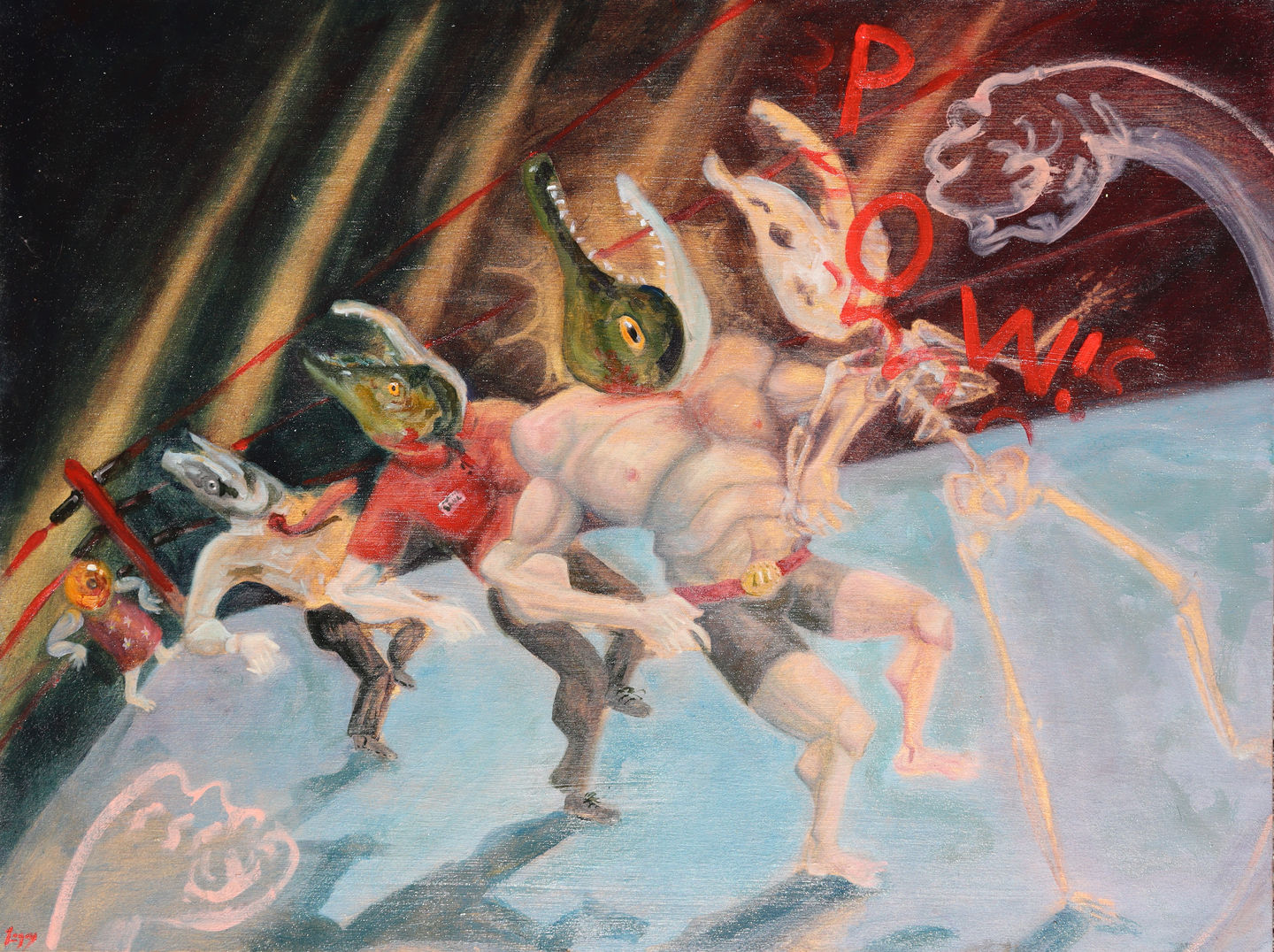Create Your First Project
Start adding your projects to your portfolio. Click on "Manage Projects" to get started
Saul Mann
Published:
03/22/2025
Saul Mann entered the world with the body of a man—and the unmistakable head of a salmon.
Shimmering.
But it never bothered him much.
In fact, he never liked the way human faces looked anyway.
Their strange, sinuous lips. Elongated noses. Bulging eyes. Dolloped with cheekbones. Those chins.
To hell with that.
The real problem for Saul was finding work. Making a living. Having the ends meet.
But too many people were frightened by him—always wary of anything different. Or unknown.
They couldn’t even look his way, let alone offer him a job.
He terrified the vanilla world—bland, brainwashed, bound by narrow rules.
This was hard on Saul. He couldn’t find his place out there.
No work. No money. No love.
All because of the way he looked.
Saul knew he could never pass as a human—not with the head of a salmon, for Christ’s sake.
But there was one place in this concrete jungle where he could shine, where being different, being a freak, was accepted: the squared circle, the wrestling ring.
That would become his arena.
While most wrestlers needed elaborate costumes and carefully crafted personas, Saul’s gimmick was simply Saul.
No clown costume. No mask. No paint. No creative gimmicks.
He was what he was. Unforgettable. Original. Different.
A good Goddamn wrestler with a salmon head.
He became a star.
In the ring, between those ropes, Saul didn’t just perform—he fought. And the people fell in love with him, as he became a fixture in the vanilla lives that had rejected him.
Saul became a symbol for the misfits, the freaks, the outsiders. They didn’t see him as a man, but as an icon—a reminder of difference, of alienation, of fighting through it all.
Swimming upstream.
Saul's popularity surged, resonating with the undulating sea of faceless bodies in the crowd.
They related to him, and together, they became a single, unified creature—excreting a constant rhythm of cheers, jeers, hisses and boos beneath the stadium’s dim lights.
It was all going so well.
Saul loved wrestling. It was his escape. His passion.
But it was slowly killing him.
Time piled up like bodies in the ring.
Twenty years passed quickly with all the slams, piledrivers and suplexes.
All those years in the ring ripping at his insides, tearing his tendons, bruising his organs, breaking his bones, battering his fish skull.
No one, not even Saul, can wrestle professionally for that long without it taking its toll—no matter how well you take care of yourself. Or don’t.
Look at all the talented ones who died too young: Guerrero. Davey Boy. Candido. Henning. Pillman.
And Saul wasn’t taking care of himself.
Saul was on that sad, hard road.
He was a man tangled in the ropes, crushed by the weight of his own myth.
How much of himself would he give?
How much more could he endure?
How many pounds of flesh would he sacrifice?
And for what?
For them?
Or was it for the feeling of belonging?







